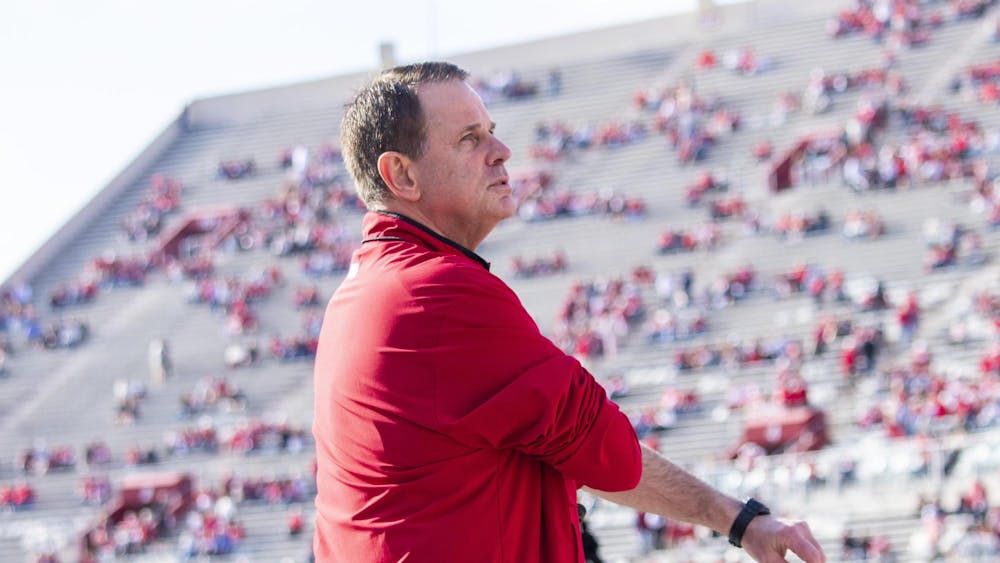The arrival of Kate Bornstein to campus had been advertised with levity. A photo of Bornstein on the Facebook event page for her “A Queer and Pleasant Danger” lecture showed her smiling largely with her head thrown back like the photographer had caught her mid laugh.
However, the atmosphere at Whittenberger Auditorium on Wednesday night was sober.
Bornstein, a long-time transgender activist and author had come to IU to talk about various theories, including those of gender and sexuality, and how studying and awareness of them could lead to more peace.
“I would hope tonight will help you through the hard times coming,” Bornstein said. “Changing of the guard on any level is difficult.”
Bornstein was referring to the incoming administration of President-elect Donald Trump and Vice President-elect Mike Pence, but she refrained from saying the names out loud. When talking about Trump, she called him “he who must not be named,” and the audience laughed and nodded knowingly.
Otherwise, there was silence.
The themes Bornstein explored in her lecture were themes she has been studying for years, but the tone was urgent.
She praised democracy as a system of government in its original form, which she said allowed for many voices to be in charge of determining who has access to what resources in society. However, she said modern democracy in the United States in particular has become problematic.
“Democracy has seen better days,” Bornstein said.
Now the president-elect has caused such a large divide between people that she is unable to identify it with specific terms, she said.
“It’s not Republican versus Democrat,” Bornstein said. “It’s left versus right. We know that much.”
The divide comes from forms of societal oppression, such as gender, race, class and ability, which were among 15 causes of oppression that Bornstein included in her PowerPoint. Together the “vectors of oppression” create a hierarchy, she said.
“There’s nothing wrong with hierarchy as a tool,” Bornstein said. “But as soon as we say, ‘This person is the best at everything and has all the power,’ we’re fucked.”
The hierarchies present in modern society have divided people even among groups that were previously more unified, Bornstein said. She said she has seen in-fighting among members of LGBT groups and called it unnecessary.
“We cannot afford to do this anymore,” Bornstein said.
Faye Glessier, an associate art professor at IU, said she had come to Bornstein’s lecture for inspiration.
“Now is a good time to be around people who are inspiring,” Glessier said.
Bornstein said a new generation of activists sat before her in the auditorium. She said she hoped those who pursued activism and societal change would pursue activism that included everyone and used coalitions unified against oppression in all forms.
“That’s hopefully your generation’s work in the face of the changing of the guard,” Bornstein said.






